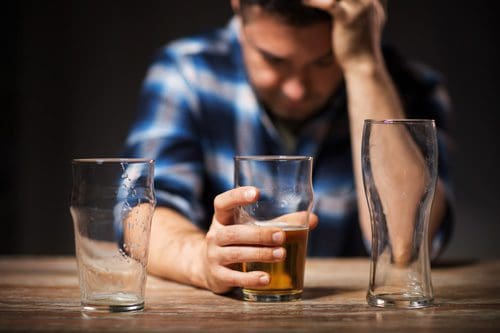Many people enjoy drinking a glass of wine with dinner or having a couple of drinks when they are out with friends. Drinking alcohol is a common and socially acceptable practice. But did you know that in the United States 12.7% of the adult population, or one in eight people, meet the diagnostic criteria for alcohol use disorder? Because so many people drink regularly, it can be difficult to tell if someone’s drinking has gone from casual to problematic.
Alcohol Use Disorder Warning Signs
If you are worried that you or someone you know may be overusing alcohol, read on to learn some warning signs that will help you understand the differences between casual drinking and alcohol use disorder.
Increased Tolerance for Alcohol
When you drink regularly, you naturally develop a higher tolerance for alcohol. For example, if you regularly have one drink with dinner and then decide one night to have two or three drinks, you will feel the effects of the extra alcohol. But if you continue to drink two or three drinks, your tolerance will build until you have to drink that increased amount to get the same feeling you previously got from one drink.
Recurring Blackouts
On occasion, even casual drinkers drink too much, causing them to experience a blackout. Maybe they got caught up in the spirit of the moment and lost track of how much they drank. Or perhaps they were not feeling well, leading to a lower resistance. An occasional overindulgence does not mean you have a substance use disorder. However, when you experience recurring memory loss from blacking out, it may be a sign of alcohol addiction.
Risk-Taking Behaviors
Drinking alcohol lowers a person’s inhibitions. For example, a person who usually needs a lot of convincing to get on the dance floor may happily dance without any encouragement after a couple of drinks. That behavior is normal. But when drinking leads to riskier behavior, like driving while drunk, having unprotected sex, or mixing medications with alcohol, it has become problematic.
Drinking at Inappropriate Times or Drinking in Secret
Drinking at inappropriate times might include drinking while driving or at work. Maybe you stop for a few drinks before meeting with friends or pour yourself extra drinks when no one is looking. These are ways of hiding how much you are drinking. Maybe you drink only when you’re alone, or maybe you hide bottles of alcohol from loved ones or housemates. You may lie about how much alcohol you consume when asked about it. Hiding your drinking is a sign that you are aware that it is a problem. It may also indicate that you are a high-functioning alcoholic.
Making Excuses
At one time or another, many of us have said, “I need a drink.” It might be because we are under a lot of stress, are feeling a lot of anxiety, or had a particularly hard day. Sometimes a drink can help a person unwind and relax. The danger builds when alcohol becomes the default way to cope with anything that deviates from the normal. If you find that you are making excuses for drinking so much–whether the reason is stress, boredom, or a special occasion–you may have an alcohol use disorder.
Changes in Self-Care
A casual drinker generally takes care of themselves and their home. When someone is addicted to alcohol, they frequently neglect themselves and their surroundings. They may not bother to get dressed or bathe regularly. Their hair may be unkempt. Their homes may have piles of dirty clothes, unwashed dishes, and accumulated garbage. Naturally, uncleanliness and messiness are not always a sign of alcoholism. However, a sudden change in these areas could be a sign that drinking has become problematic.
Help Is Available
If you or someone you love is struggling with an addiction to alcohol or drugs, you are not alone. At Canyon Vista Recovery Center, located in Mesa, Arizona, our caring and professional staff can help you get your life back. Give us a call to find out how to begin your journey to a clean and sober life.





